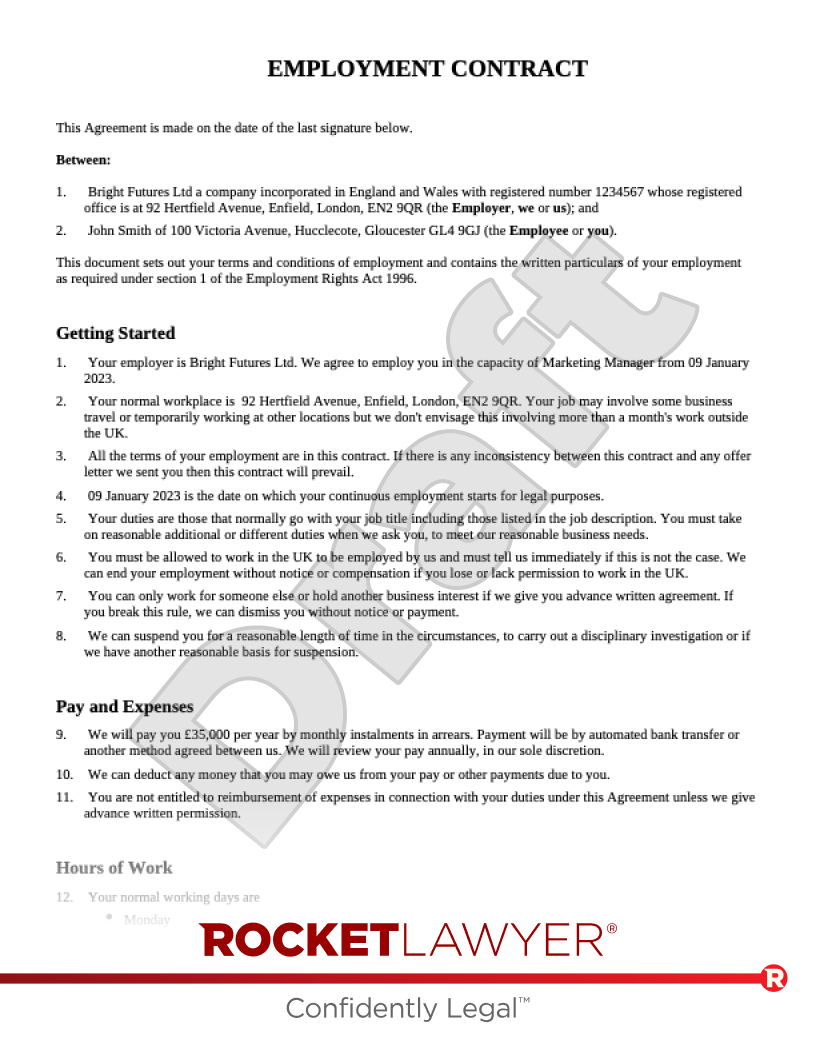What is an employee share scheme?
There are various types of employee share schemes but in general, these consist of options for employees to purchase company shares at a fixed price or the market value when the options were granted. In some cases, the company may offer shares for free, as an incentive.
For information on options and how they differ from shares, read Comparing share options with shares.
What are the main types of schemes and how do they work?
There are two categories of schemes: HMRC-approved share schemes and unapproved share schemes.
The four HMRC-approved schemes are most commonly used since they provide tax advantages. They are:
Share Incentive Plans (SIPs)
This scheme keeps shares in a plan for at least 5 years to avoid paying income tax or national insurance on their value.
The shares are held by a trustee in a special purpose trust on behalf of the employees. Dividends paid into the trust can be used to purchase further shares or distributed amongst employees.
These types of shares can be obtained in several ways:
-
for free - £3,600 of free shares in any tax year can be given to an employee
-
partnership shares - buying shares out of salary before tax deductions, up to the lower of £1,800 or 10% of employee income for the tax year
-
matching shares - employers can gift up to two free matching shares for each partnership share purchased
-
dividend shares - if permitted by the share scheme, employees can buy more shared with the dividends they get from free, partnership or matching shares. Income tax will not need to be paid on the shares’ values if they are ket for at least 3 years
No capital gains tax (CGT) is payable for selling the shares if they’re kept in the plan until they’re sold. However, if the shares are taken out of the plan before the sale, CGT may apply if their value increased.
SIPs must be implemented company-wide and corporation tax relief is available.
For more information, read the Government’s guidance.
Save As You Earn (SAYE)
SAYE enables employees to buy shares for a fixed price with their savings. SAYE allows employees to save up to £500 per months under a savings contract which lasts 3 or 5 years. The amount is taken from the employees’ salaries. At the end of the savings contract, the savings can be:
-
used to purchase shares at a fixed price (the market value of the shares when the plan started with up to a 25% discount)
-
withdrawn as cash
-
used to continue with the investment
No tax needs to be paid on the interest in savings. Similarly, any profit on the difference in the share value is free from income tax and national insurance. However, CGT may be payable for the sale of shares.
SAYEs must be approved by HMRC in advance and must be implemented company-wide.
For more information, read the Government’s guidance.
Company share option plan (CSOP)
CSOP allows employees to buy up to £60,000 worth of company shares at a fixed price. No income tax or national insurance is due on any difference between what was paid for the shares and their value. The option can be exercised between 3 and 10 years after its grant. However, the subsequent sale of those shares will still be subject to CGT.
Companies can choose to apply the scheme to selected employees and specify conditions (eg performance targets) to be satisfied before the option can be exercised. Advance approval from HMRC must also be sought.
For more information, read the Government’s guidance.
Enterprise Management Incentives (EMIs)
Companies with assets of £30 million or less (subject to certain exclusions) can grant options up to the value of £250,000 in a three-year period. No income tax or national insurance needs to be paid if the shares are purchased for at least the market value they had when the option was granted. However, if the employee sells their shares, CGT will be charged.
No tax is chargeable for the issuing or exercising of the option.
The option must be exercised within 10 years and can be granted to selected employees.
It’s advisable to seek HMRC’s approval before implementing the scheme to ensure that all tax advantages are afforded. For more information, read Enterprise Management Incentives (EMI share scheme).
What is an employee shareholder?
Employee shareholders work under a specific type of employment contract, known as an 'employee shareholder employment contract'. The company must give shares with a minimum value of £2,000 (upon receipt) to each employee working under this type of contract. In return, the employee shareholders have to give up certain employment rights.
To become an employee shareholder the following conditions must be met:
-
both parties must agree that the employee will be an employee shareholder
-
the employee must be given fully paid-up shares worth at least £2,000
-
no payment can be made for these shares
-
the employee must be provided with a written statement of the particulars of their employee shareholder status
-
the employee must be provided with a written statement of the rights attached to their shares (eg voting rights)
-
the employee must receive 'relevant independent adviser' (eg from a lawyer or independent trade union officer) on the terms of the proposed agreement. The cost of the advice needs to be paid by the employer. The agreement can only be entered if at least 7 days have passed since the employee received the independent advice
There used to be tax advantages for this type of contract but these were abolished on 1 December 2016.
If you’re interested in implementing an employee share scheme, read Choosing the right employee share scheme. If you have any questions about employee share schemes, Ask a lawyer.




